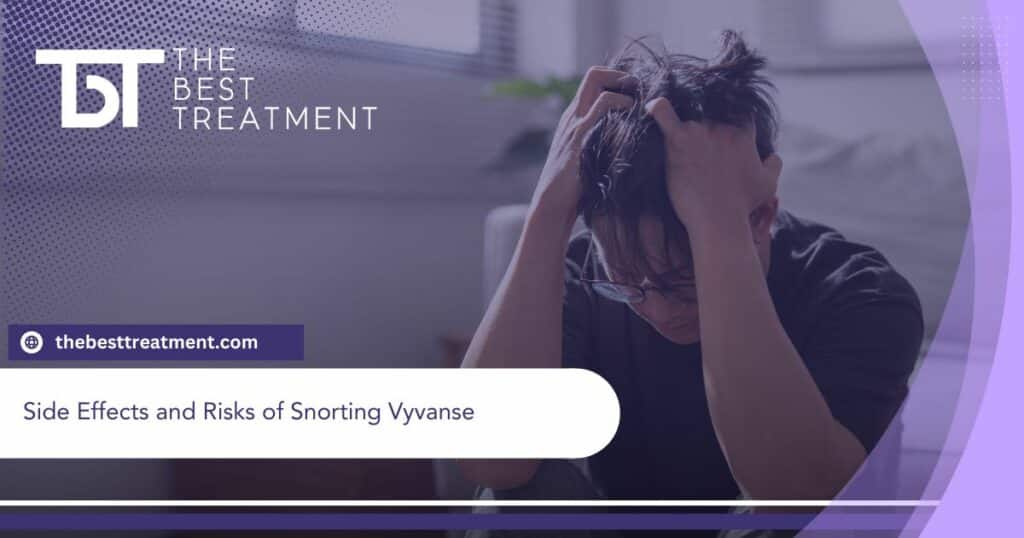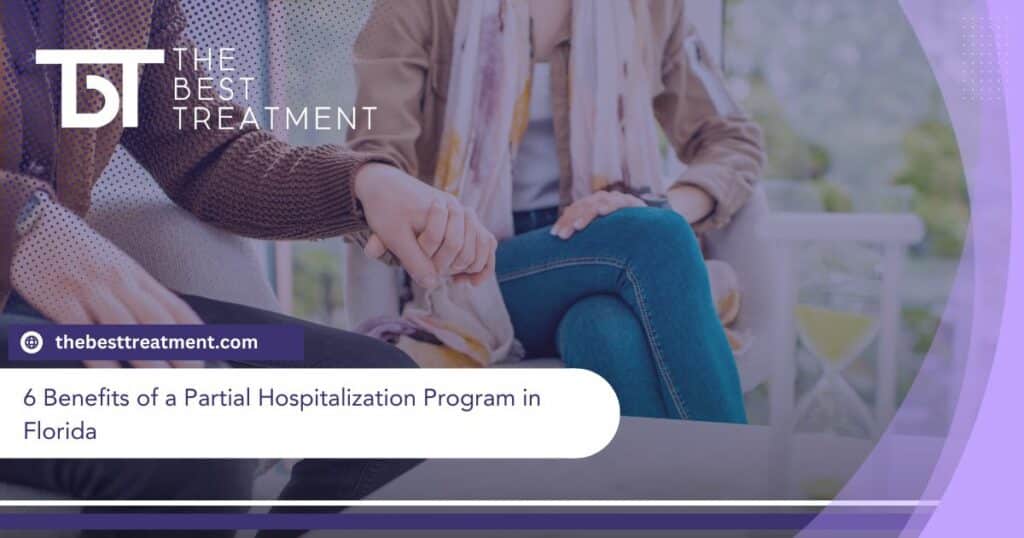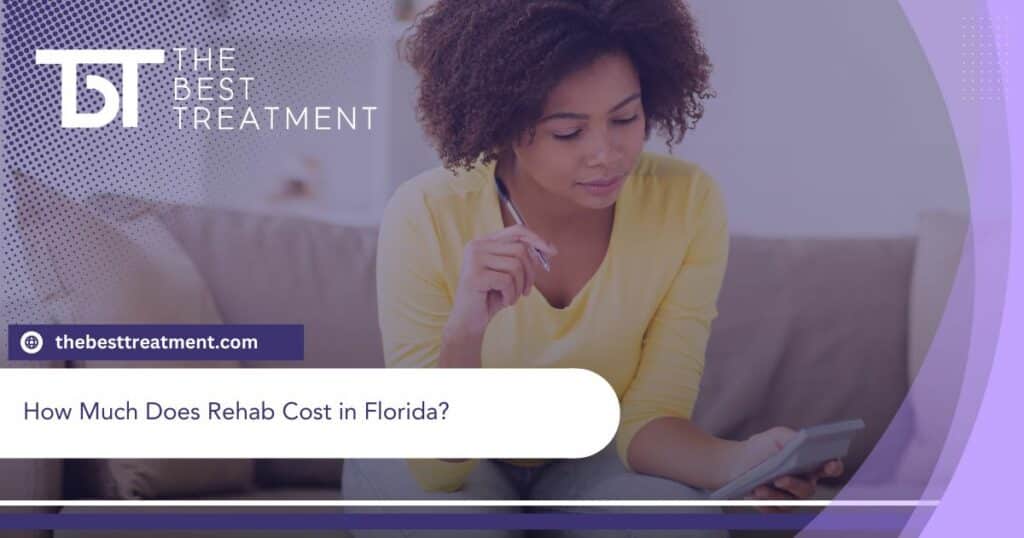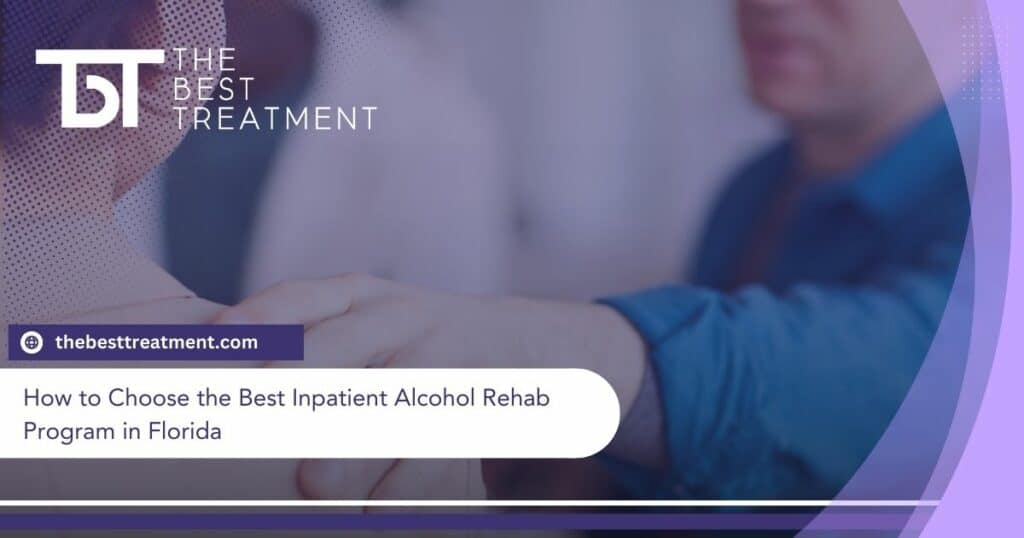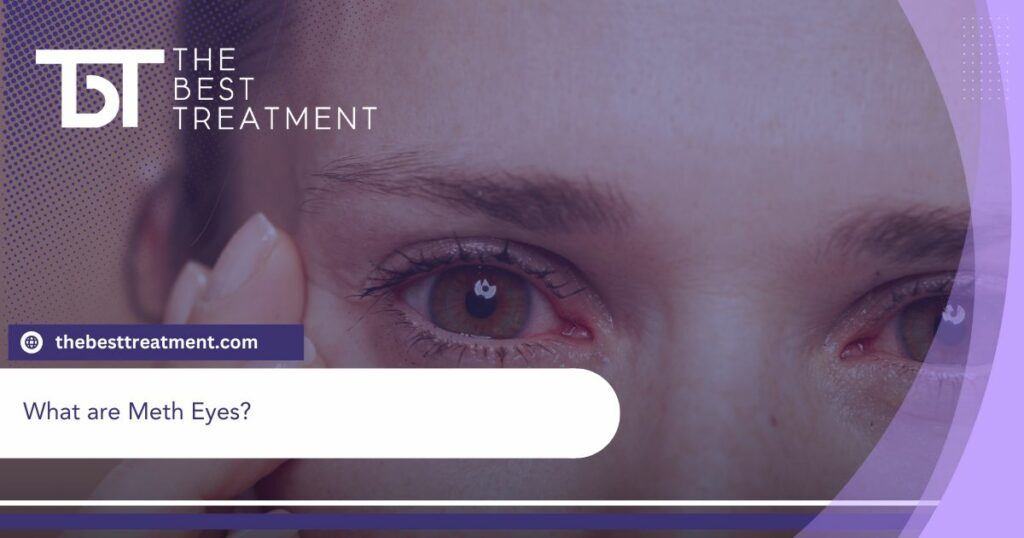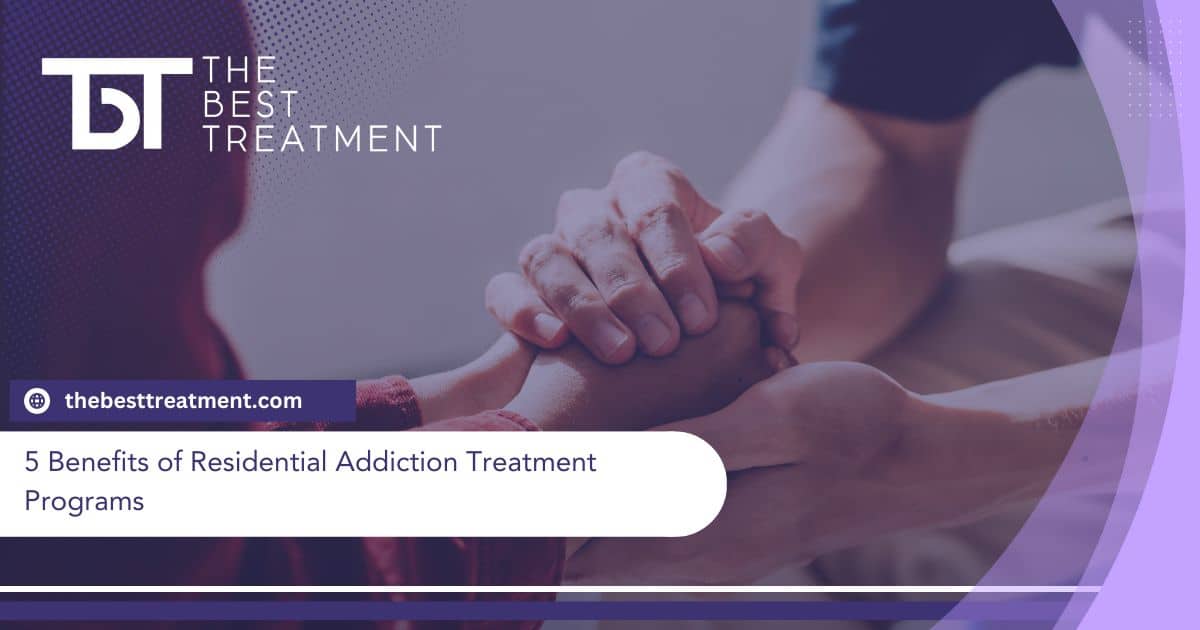Table of Contents
Drug and alcohol addiction can significantly impact every aspect of your life. Your health, emotional stability, relationships, and more can suffer when you’re living with an untreated addiction.
Getting help to overcome an addiction is one of the best decisions you will ever make. However, very few people who live with addiction ever get the treatment they need to overcome it. One of the barriers preventing people from getting care to address addiction is fear of the unknown.
Knowing what to expect during treatment can help you feel more confident when seeking the help you need to overcome addiction. This article will detail what to expect from a residential addiction treatment program and several benefits of this type of care. You will also learn how to determine which level of care is appropriate for your needs and how to find the treatment you need.
If you or someone you love lives with addiction and need to go to rehab, you can find the care you need at The Best Treatment Center. Reach out to our knowledgeable admissions staff now to learn more about our programs and schedule an intake assessment.
What Happens During Residential Addiction Treatment?
Addiction is a complex condition that requires comprehensive treatments for a person’s body, mind, and spirit. People living with addiction need compassionate support, evidence-based treatment, and holistic therapies that care for every aspect of who they are. Addiction treatment programs generally occur in stages.
Stages of treatment
During residential addiction treatment programs, people live in a treatment facility and follow an intensive schedule of therapy and treatments that address the complex aspects of their substance abuse.
For many people, a medically supported detox program is the first stage of addiction treatment. During detox, people receive the supervision and treatment they need to stay safe and comfortable during detoxification. Care during detox often includes medications to manage withdrawal symptoms, emotional support, and round-the-clock supervision.
After completing detox, people may participate in a comprehensive substance abuse treatment program. Treatment plans are tailored to meet each person’s needs but typically include:
- Individual behavioral therapy
- Family therapy
- Group support
- Relapse prevention education
- Medications
- Mental health treatment
- Exercise, nutrition support, and other holistic services
After completing a residential addiction treatment program, people may move to less intensive levels of care or may develop and follow an aftercare plan that involves support and treatment in the community.
Duration
Every person has their own experience with addiction and recovery, and there are many levels of care and lengths of programs to meet varying needs. The typical duration of a residential addiction treatment program is 30, 60, or 90 days. However, people with severe addictions, co-occurring mental health conditions, or a history of substance abuse treatment may require more time in treatment.
What Level of Care Do I Need?
Before beginning a treatment program, you will undergo a substance abuse evaluation that includes questions about your substance abuse, family history of addiction, mental and physical health, and more. The information gathered in this assessment will allow your treatment team to recommend the appropriate level of care and develop a course of treatment that will best meet your needs.
For some, a residential addiction treatment program may be required to keep people safe and allow them to stabilize. Others may begin their recovery journey in an outpatient treatment program, such as an intensive outpatient program or partial hospitalization program.
5 Benefits of Residential Addiction Treatment Programs
Residential addiction treatment programs can offer an intensive level of care that allows people to safely detox from drugs and alcohol and begin their recovery journey with a solid foundation of support.
Here are five of the most significant benefits of residential addiction treatment programs.
1. Holistic treatment
Residential addiction treatment programs offer unparalleled levels of care and support to people who require stabilization during detox and beyond. Because people live in the treatment facility, they have round-the-clock access to the services, treatment, and professional support they need to start the recovery journey on the right foot.
People in residential addiction treatment programs spend several hours a day engaging in behavioral therapies, education, holistic treatments, and mental health care without needing to worry about daily chores, work, and other tasks that may distract them from focusing on their recovery.
2. Structure
Living with addiction can feel chaotic. People with addiction often are unable to follow a daily schedule that allows for rest, regular meals, sleep, and socialization. However, following a structured schedule can provide a sense of security and regularity that supports lifelong recovery.
In a residential addiction treatment program, patients stick to a strict schedule of treatments and recovery-related activities and learn how to structure their lives in a way that supports healing and lifelong sobriety.
3. Community
Living with addiction can be isolating and lonely. Participating in residential addiction treatment programs gives people a community of peers and staff who will support their recovery journey. Patients learn how to communicate more effectively and learn how to navigate the earliest days of recovery with a supportive community.
4. Tailored treatment
Residential addiction treatment programs provide continuous support and supervision, allowing staff members to alter patients’ treatment plans as needed. Receiving specialized treatment will enable people to move at their own pace and work toward new goals as they progress through recovery.
5. Aftercare planning
While people can learn to manage their substance abuse and addiction, these conditions can never be cured. People need to develop an aftercare program that will support their lifelong recovery from addiction. In residential addiction treatment programs, mental health and addiction professionals can help patients create a realistic aftercare plan that includes community programs, support groups, medical support, and mental health treatment.
Residential addiction treatment programs offer an unmatched level of care and support when people need it the most. People who participate in residential addiction treatment programs often have better outcomes and longer-lasting recovery than people who do not receive this type of care.
Find Residential Addiction Treatment in Florida Now
If you or someone you love needs the support of a residential addiction treatment program or any other level of substance abuse treatment, reach out to The Best Treatment center staff now to learn about our holistic, effective programs and schedule an intake.
Medically Reviewed: September 25, 2019

All of the information on this page has been reviewed and verified by a certified addiction professional.





